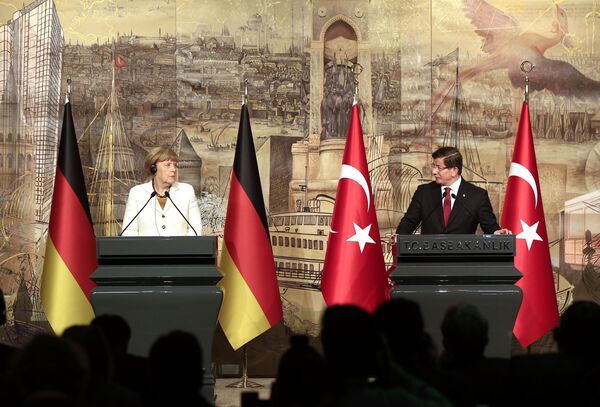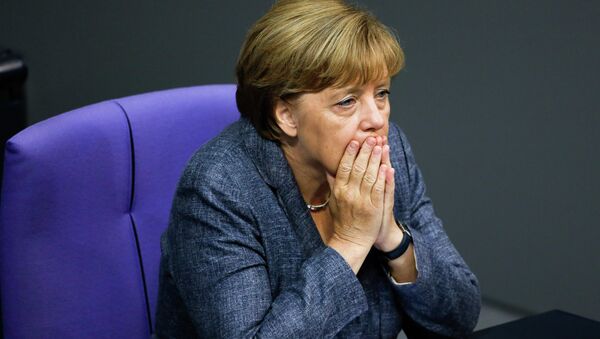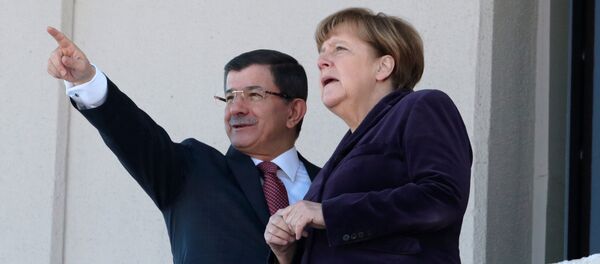On Thursday and Friday leaders from the EU's institutions and member states will focus on two main issues: the UK's plans for an in/out referendum on membership of the EU, and the migration and refugee crisis.
Before leaving for the summit in Brussels, Merkel told the German Bundestag on Wednesday that "the success or failure of the Council meeting will not be decided by the issue of quotas … that is putting the second step before the first."
"The upcoming European Council meeting is about something completely different," Merkel said, and referred to the agreement the EU made with Turkey on November 29 to stop the flow of migrants into Europe in return for political concessions and financial support for Ankara.

"Or do we have to give up and instead, as some are now vehemently calling for, close the Greek borders with Macedonia and Bulgaria, with all the consequences for Greece and the EU as a whole?"
However, East European leaders are already one step ahead; at a meeting in Prague on Monday the leaders of the Visegrad countries, Czech Republic, Hungary, Poland and Slovakia, agreed on the closing of the Balkan migration route which was used by hundreds of thousands of migrants and refugees last year.
"As long a common European strategy is absent, it is legitimate that states on the Balkan route protect their borders," Slovak Foreign Minister Miroslav Lajcak told Der Spiegel.
The newspaper also noted that pressure in Germany is growing to impose border controls in the EU, which would bring an end to the Schengen system of free movement.
"We need to close down the Balkan route. Somebody who wants to maintain open borders has to also be able to close borders," said deputy chairman of the SPD Axel Schäfer, whose party is in a ruling coalition with Angela Merkel's CDU party.
On Wednesday Deutsche Welle (DW) wrote that the chancellor's hopes of resolving the migration crisis with the help of Turkey, and thereby saving Schengen, are not shared by many in Germany.
"Politically, Berlin has never awaited an EU summit with such nerves … some are talking about the most fateful days for Germany since reunification, others – since the end of the Second World War," the newspaper reported.
"The majority of German observers believe that there won't be real progress on solving the refugee problem, and that Merkel will return from Brussels empty-handed. And what then?"
"According to DW's sources, the interior ministry is making preparations to close the German borders on Friday night, initially for a period of two weeks."
In addition to the end of Schengen, DW also remarked on the internal political consequences for Germany, and for the chancellor personally.
"Some Bundestag deputies who have spoken to DW recently do not exclude the chancellor's resignation. They say that Merkel has always said that she would leave rather than suffer a heavy election defeat like Helmut Kohl did."
Senior representatives of the CDU's Bavarian sister party, the CSU, "strongly recommend that CDU colleagues don't position themselves as staunch supporters of Merkel," DW wrote.
The CSU, who have already called for Germany to take a maximum of 200,000 asylum seekers each year, "consider the chancellor to have 'run out of steam' and its leaders say that 'now you can't even win a flowerpot' with her in charge," DW reported.






